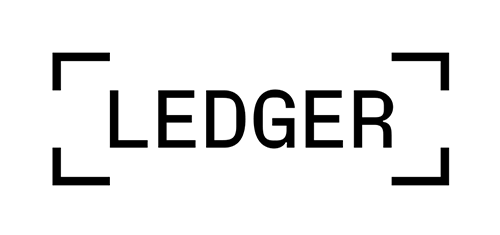
Quick Facts
Ledger Products
- Stax
- Nano X
- Nano S Plus
Company Vitals
Founders: Éric Larchevêque, Joël Pobeda, Nicolas Bacca, and Thomas France
Year Created: 2014
Headquartered: Paris, France
Company Overview
Ledger is a company based in France, specializing in developing security and infrastructure solutions for cryptocurrencies as well as blockchain applications for individuals and companies. Founded in 2014 by experts with complementary backgrounds in embedded security, cryptocurrencies, and entrepreneurship, Ledger aimed to create secure solutions for blockchain applications at a time when this market was still in its infancy. The company has grown significantly, with over 600 employees in France and San Francisco, and has sold more than 1,500,000 Ledger wallets in 165 countries. Their primary goal is to secure the new disruptive class of crypto assets.
Ledger offers a range of hardware wallets, including the Ledger Nano S Plus, Ledger Nano X, and Ledger Stax. These devices are designed to securely store the private keys of cryptocurrencies offline, offering a high level of security against online threats. These hardware wallets work in conjunction with the Ledger Live app, which allows users to manage their crypto assets, including buying, selling, and staking.
The company is headquartered in Paris, France, and has raised significant funding to support its growth and development. In 2021, Ledger raised €356 million ($385 million at the time), and in 2022, it announced an additional €100 million ($108 million) in funding. This demonstrates the strong backing and confidence in Ledger’s products and services within the cryptocurrency and blockchain community.
Security Incidents
- On Dec 2023, a former Ledger employee fell victim to a sophisticated phishing attack, which led to a malicious version of the Ledger Connect Kit being published on NPMJS. This exploit affected users who connected to decentralized applications (DApps). The attacker managed to gain access to the employee’s NPMJS account by bypassing two-factor authentication (2FA), using their session token. The attack was facilitated by a phishing email that tricked the employee into clicking a malicious link. The attack resulted in a loss of approximately $600,000 in assets. Ledger announced plans to disable blind signing for Ethereum Virtual Machine (EVM) decentralized applications by June 2024 to prevent similar incidents in the future.
- 2023: The Ledger Nano X and Ledger Nano S were reported to have issues. Some users experienced problems with their devices, such as error messages and battery issues, which persisted for several years. In response, Ledger put together a troubleshooting guide to address some of the issues.
- 2019-2024: There was a significant data leaks involving Ledger, which was reported to have occurred over a period from 2019 to 2024. These leaks exposed personal information of Ledger customers, including names, physical addresses, phone numbers, and email addresses. The leaked data was freely released on a hacking forum, Raidforum, and affected over ~273,000 Ledger customers.
Big Brother Government Influence
- In May 2023, Ledger announced the launch of its Ledger Recover service, which aimed to provide an optional recovery service for users’ seed phrases. This service required users to provide a government-issued ID for verification and divided the encrypted seed phrase into three fragments, stored with Ledger, Coincover, and an independent backup service provider. The announcement sparked significant controversy and backlash within the cryptocurrency community. Critics argued that this service undermined the core principles of self-custody and decentralized finance, as it required users to trust third parties with their sensitive information. Ledger CEO Pascal Gauthier mentioned that while governments could legally obligate Ledger to hand over the seed phrases of Ledger Recover users, it remains an extremely unlikely scenario. One note, this only applied to Ledger’s backup Recover service and not it’s hardware devices.
